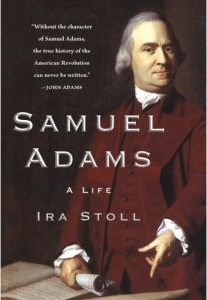 If Patrick Henry was the voice of American resistance to the policies of Great Britain, Samuel Adams was the organizer.
If Patrick Henry was the voice of American resistance to the policies of Great Britain, Samuel Adams was the organizer.
His contributions to American independence are immense. Far ahead of his contemporaries, he believed that independence was inevitable. When others thought everything between the colonies and the Mother Country had been ironed out, Adams understood that the truces were essentially temporary peace arrangements. The problem, he knew, was that both operated from differing principles. To keep his fellow citizens informed on those principles, he started the Committees of Correspondence.
Samuel Adams’s convictions and actions were the result of his Christian faith. Energized by George Whitefield in the First Great Awakening, he became the premier defender of American rights. His Rights of the Colonists included a section called “As Christians.”
The book above, which is a fairly new biography of Adams, is the best I’ve ever read at showing how his Christianity formed the foundation for all his actions. I heartily recommend it.
Adams was present at the creation: he was a signer of the Declaration of Independence. Upon his return to Philadelphia in August 1776 to sign the document, he gave a speech that is actually as much a sermon as a speech. In this American independence speech, Adams noted,
We have this day restored the Sovereign to whom alone men ought to be obedient. He reigns in Heaven, and with a propitious eye beholds his subjects assuming that freedom of thought and dignity of self-direction which He bestowed on them. From the rising to the setting sun, may His kingdom come.
Some historians have referred to Adams as the last Puritan. I would instead view him as a key transmitter of the Biblical tradition, which eventually transformed into an evangelicalism that dominated American society in the first half of the nineteenth century.
While we may respectfully discuss some of Adams’s tactics in his endeavor to foster American independence, none can reasonably deny the faith that inspired his actions. He deserves respect as one of the seminal Founding Fathers.
